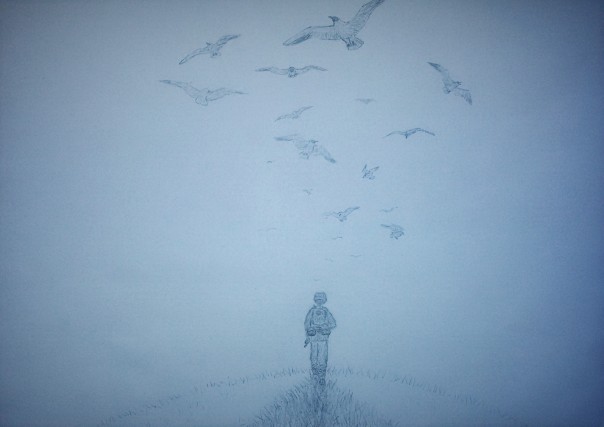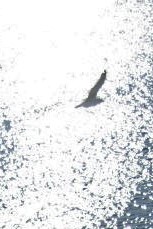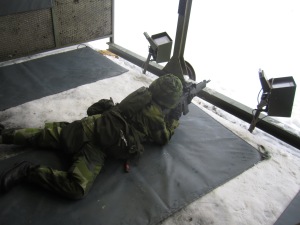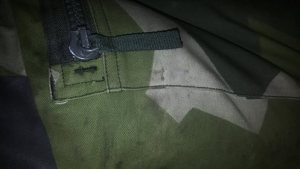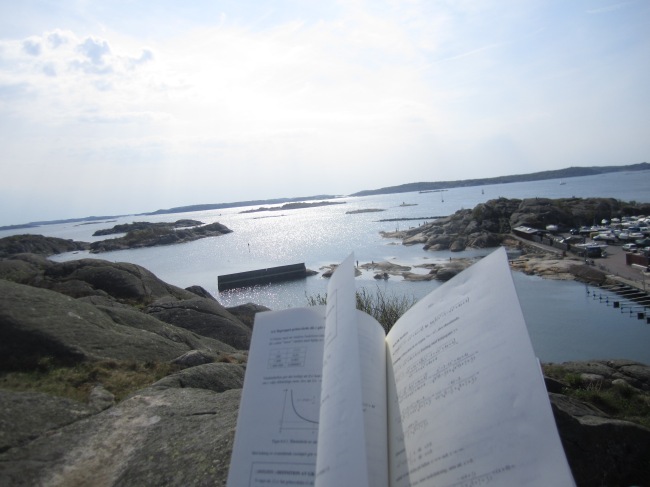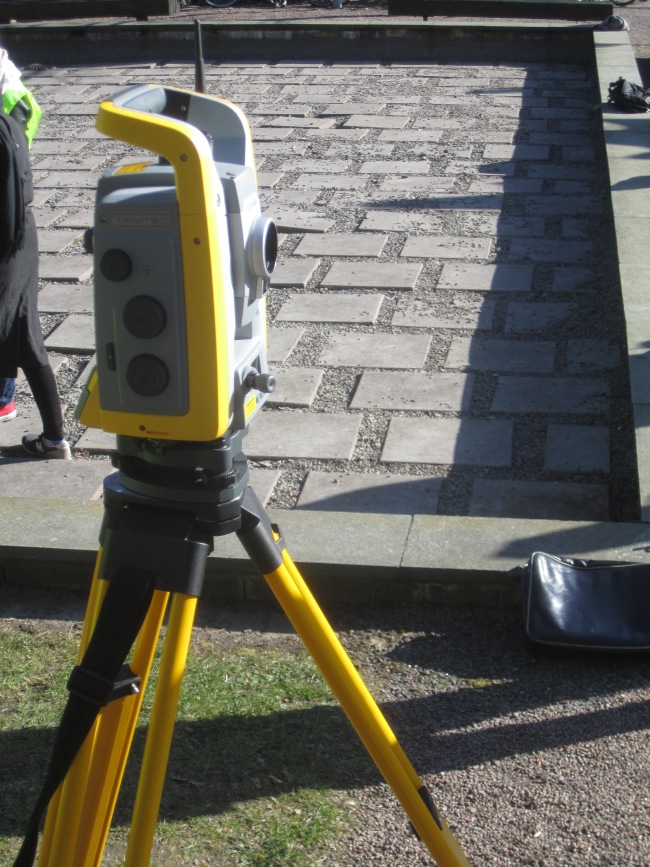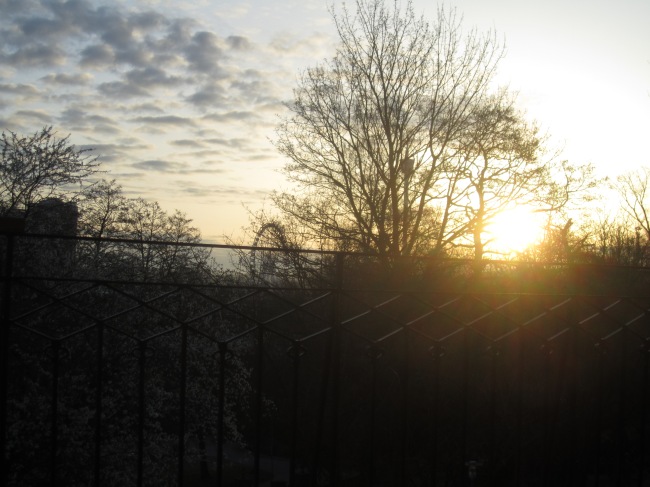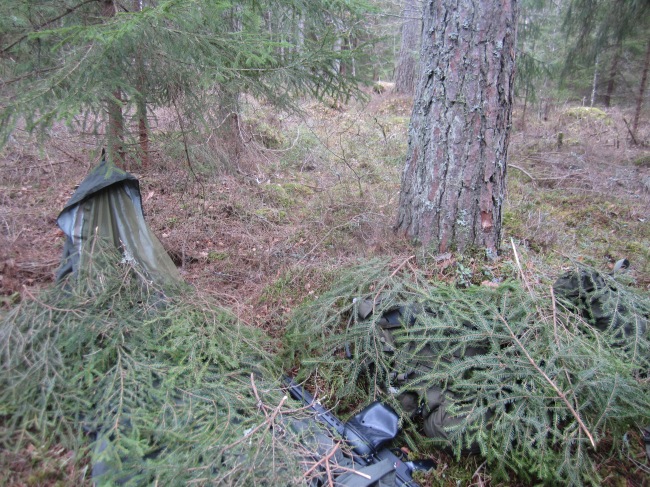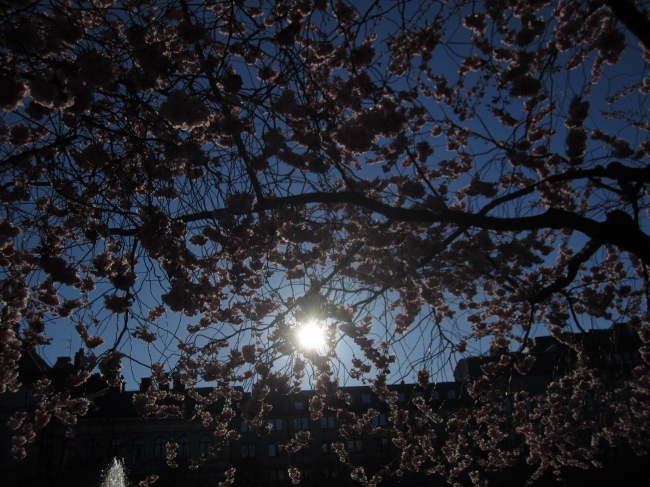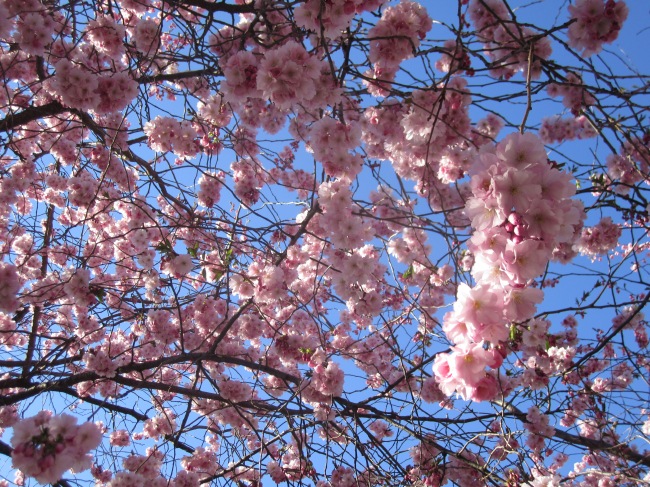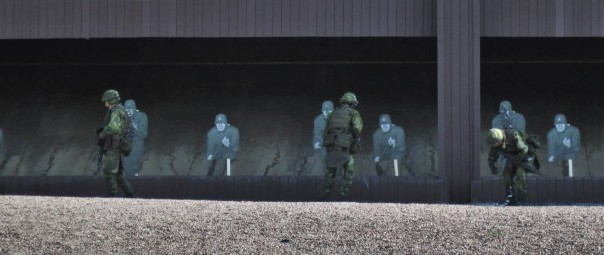
During the last years, the armed forces of many countries have gone from relying on conscription for recruitment to being manned entirely by professional personnel. After a time of reducing the number of people called to serve for each year, Sweden finally followed this trend and in 2010 the conscripts were replaced by volunteers. During the five years that have gone by since the abolition of mandatory service in peace time – and especially after the crisis in Ukraine – many voices for the reintroduction of conscription have been raised.
The main argument that is heard is that Sweden would be better prepared in case another country attacked because a larger number of people would have received at least a minimum amount of training and could be called to serve. Another argument (often uttered by my commanders) is that mandatory service made it feasible to train soldiers much more intensively during the year that they served than it has been possible to do now. During basic training the number of people quitting is high and after basic training the hours of service per day are reduced in order to match the working hours of the rest of the country. During mandatory service this was not the case and continued training more or less kept the same intensity as basic training. In this way soldiers would get more training in less time and for less money. It was also easier for commanders to plan exercises and to finish those that had been started, without having to cut them off abruptly because the working hours were over as it happens now. This can be frustrating for motivated soldiers too. Maybe, however, this problem will be reduced with the new system. It seems that it will make it possible to train new soldiers for more hours each day even during the months following basic training. Maybe another good thing would be to make it harder for people to leave whenever they want to, especially during the beginning of basic training when most people struggle to adjust to military life and many give up. It can be a good thing for a professional army to get rid of people who do not fit and who are not motivated enough so that money can be saved. However, the beginning of basic training is far from a perfect indicator of who will do well in the armed forces afterwards and who will not.
A further argument for mandatory service is that it makes the military more connected to the people. Once, almost everybody knew plenty of people who were serving or had served. This created another attitude and understanding for the armed forces. I experienced what this difference can mean during my medic training. It took place in a part of the country where the military still has several regiments and establishments. Seeing military vehicles roll on the streets is just an everyday thing to the people living there and gunfire is a background noise that they barely pay attention to. Most of them know someone who serves and when you talk to them they almost always have at least a fair idea of what you do and what it means. On the other hand, when people in Gothenburg (where the military is less present nowadays) have found out that I am in the military, or when I have happened to walk through the city in uniform, I have been met by questions of how it is to train to kill people, if I think that I am cool and a lot of exclamations of: “look! A military!”. These things mostly come from young people, who have grown up after that the armed forces had already been significantly reduced and many regiments disbanded. Besides from being annoying sometimes (but occasionally also somewhat funny), this aspect is not good for society in many ways. First of all this lack of understanding is probably one of the reasons for veterans having problems to readjust when they come back from service in war areas. Secondly: if more people have an understanding of the armed forces, more people can have an informed say about them and about defense politics, instead of risking to sound ignorant and lose audience. More people will feel confident enough about these matters to express their thoughts about them and more people will be able to influence them. The armed forces and defense politics are something very important with potential to affect the whole society. Therefore a larger part of the population should be able to participate in the shaping of them.
Armed forces manned by conscripts also serve to bring people together who are from different backgrounds, with different personalities, dreams, goals, views of the world etc. They learn to live together and collaborate, which is a good thing for the society afterwards. It also means that, not only will more people be able to influence the decisions about defense politics and armed forces, but also more different kinds of people.
The role of conscription as a means to teach the population certain important things should not be underestimated either. A period of service in the armed forces is an opportunity to acquire outdoor knowledge, to learn about first aid, about collaboration under challenging circumstances, about putting out fires as well as other things which many people do not learn enough about otherwise.
There are however some important arguments against conscription too. Professional soldiers have the possibility to attain a higher level of proficiency than conscripts since they stay in the armed forces for a longer time. While it costs a lot to train new people each year on certain systems and to do certain tasks, in professional armed forces it is sufficient to train a smaller number of people who stay longer.
Also: that more people serve because they are forced to, and that everybody has relatives and friends who serve, might make people reluctant to send forces on deployment abroad. This can be a good thing, in certain cases, but it might also cause decision-making to drag out in times when it is vital to make quick decisions.
Another positive aspect of professional armed forces is that the soldiers tend to be more motivated. They are serving because they want to. Maybe, the motivation in a conscript army can be kept up if care is taken to place people on positions appropriate for them and if one is ready to move them from one position to another if it is discovered that they do not fit in their current one. A well-functioning civil service system should also be put in place to give people an alternative to military training and still keep them in roles that can be useful in case of war.
Could the best solution be a combination of conscripts and professionals? This is still the system that I would prefer to see in Sweden. It is already in place in two of the neighboring countries: Norway and Denmark. A large number of conscripts could be given a few months of compulsory training, while positions that require more training are manned by professionals. The conscripts would provide a good base for recruitment to the professional placements. A certain number of voluntary people could also be trained and kept ready for international deployment, like during the last years of mandatory service in Sweden.
The question about conscription is an important one and one that I find quite interesting. It has been, and keeps being, debated in countries all around the world. Some arguments, both for and against, are more unique to individual countries and their specific situations while others are recurrent and global. Different countries probably need different solutions. A country like Sweden, with very few inhabitants compared to its land area, might benefit more from one model, while the same model might not be applied as successfully in a country with many more inhabitants and other circumstances. It will be interesting to keep following these debates and see where they lead.
